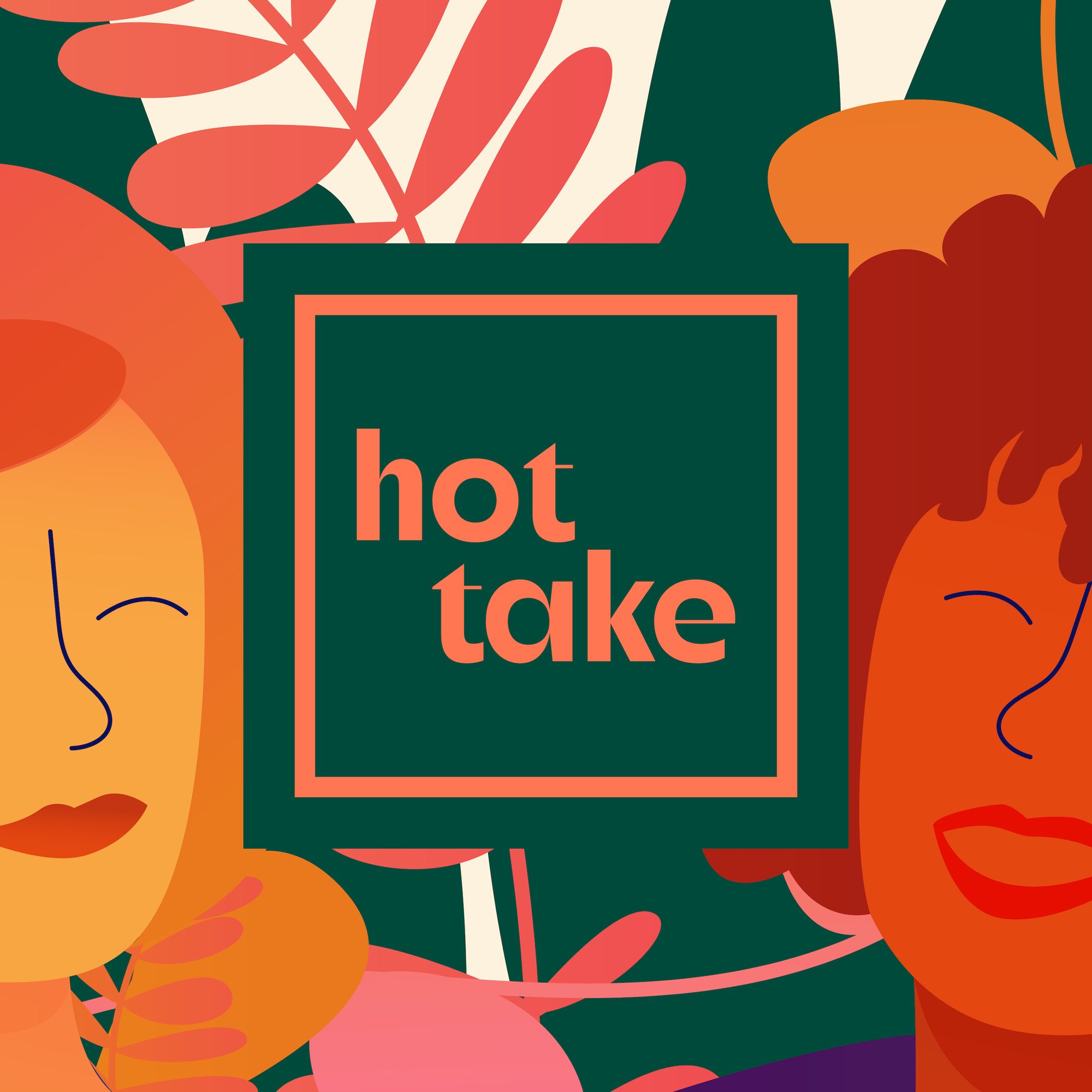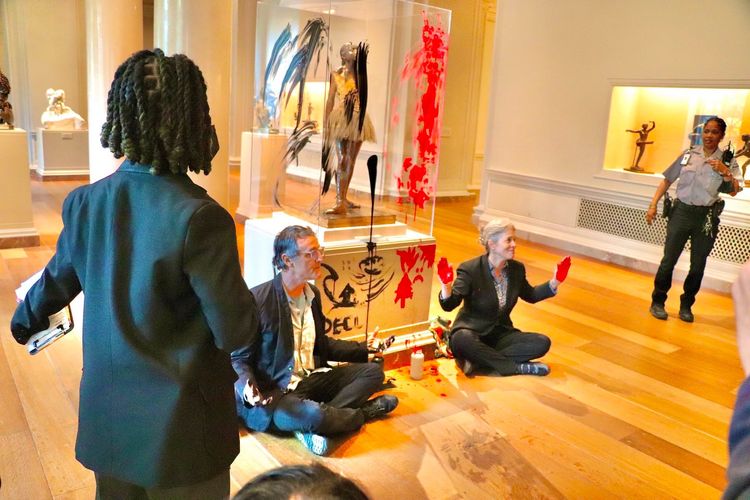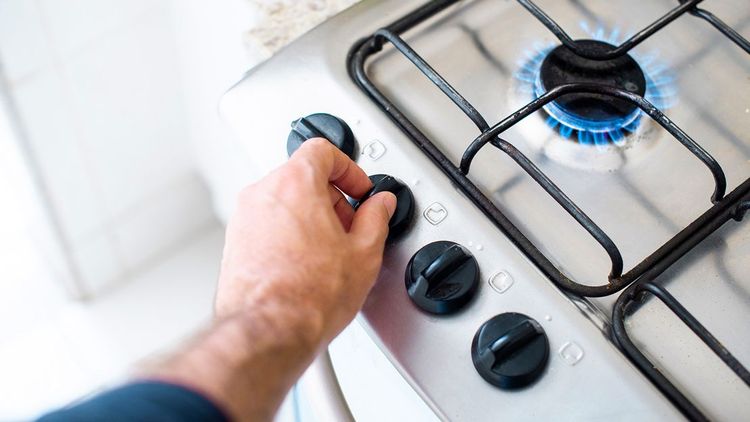There Is No Magic Word
There’s No Magic Word
By Mary Annaïse Heglar
Last Tuesday, I sat on a panel with The New Republic about the language around climate change and what it says about us. As anyone who reads this newsletter knows, this is something I care deeply about, but I also think it might be a bit too much of an obsession in climate circles. It’s something that's kept me up at night, and prompted prolonged Twitter breaks. I’ll try to explain.
First of all, since climate change is still largely thought of as a scientific topic, I think the climate community is still dominated by lots of math- and science-types. Left-brained people. We need these people, of course. But as someone who has edited these folks for years, let me tell you: there’s a reason they need editors. They’re trained to speak in terms that are precise to the point of inaccessibility, which is how jargon is created. And it doesn’t work outside of their bubble. I’d argue it’s part of the reason it took so long for climate change to become a regular topic of conversation.
Relatedly, because climate change is a scientific reality, people have tended to talk about climate action like it's about “data and reason.” As a result, there’s this pernicious idea that once we find the magic word, all the barriers to climate action will just come tumbling down. That’s never going to happen. It doesn’t matter if we say “global warming” or “climate change,” “natural disaster” or “climate disaster” or “extreme weather.”
Don’t get me wrong: we should choose our words carefully. We should absolutely try to avoid language that is hurtful to the people we want to help. And we should remain mindful that language, by its very nature, is always evolving. But it becomes a problem when we start policing every word that comes out of each other’s mouths. It makes people not want to talk about this at all. And who does that serve? Climate change is hard to talk about because it’s hard to face, so I’d like to see people give a little more grace to the people who are trying.
P.S. This Tuesday, I’ll be joining Kendra Pierre Louis, Drew Costley, and Jariel Arvin for another panel with Black Oak Collective. Sign up!
Find Us in The Nation
By Mary Annaïse Heglar
If you’ve been reading the feature stories here in Hot Take and thinking “I wish these were longer,” I have got some exciting news for you! Amy and I will be joining The Nation starting October 20 for a six-week guest columnist role! Get excited!
I’ve not written an essay in almost a year, largely due to capacity and big life changes (like moving across the country!). So there’s a lot of ideas that have been clattering around in my head. Hot Take is a great outlet for those thoughts, but there are a good few that I want to explore more deeply, and I know Amy does too.
That said, running a weekly newsletter AND doing a weekly column at The Nation is a lot to balance with all the OTHER things we do, so we’re gonna have to pull back on Hot Take for a little bit. In fact, we’re going to make the newsletter biweekly instead of weekly for the rest of 2021, kicking 2022 back off with your regularly scheduled vigor.
Now's a Good Time to Cyberbully Sinema and Manchin
By Amy Westervelt
Somehow the Democratic party has absolutely failed to message around what's at stake as Congress negotiates the $3.5 trillion infrastructure bill. It's currently our best hope at tackling climate (although still vastly short of where we need to be for rapid decarbonization), with incentives for emissions reductions and energy transition, an end to fossil fuel subsidies, and major investments in public transit. It also delivers parental leave policies that are enormously popular across the political spectrum. With no cohesive vision about tackling the biggest problems facing society, Democrats have ceded the conversation almost entirely to the most basic opposition: $3.5 trillion is a lot of money.
They haven't even made it clear that the money will be spent over a decade, and that it's about half of what we'll spend on the military in the same timeframe. It hasn't helped that two so-called "moderate" Dems, blonde Alanis Morisette impersonator Kyrsten Sinema** and West Virginia coal baron Joe Manchin are also pushing the "damn, that's expensive" line. Synema and Manchin's opposition to the bill means Dems run the risk of squandering the narrow window in which they could actually leverage their slight majority in Congress, and pass something that might even help them maintain or—dream big—grow that majority. I figure, they're trolling all of us, why not troll them back? Lots of Beltway pundits have been worried about Sinema, in particular, getting "bullied." Listen, pushing our elected officials to do their damn jobs is not bullying, it's just being an engaged citizen. Here's some material if you need it:
- Joe Manchin is literally a coal baron. Manchin founded a private coal brokerage in 1998 called "Enersystems." He keeps shouting about how it's a "blind trust" and he's not involved at all. But… it's run by his son! Manchin still owns at least a $5 million stake in the company, possibly more, and he collects $500,000 a year in dividends from it. Can you say “conflict of interest”?
- Kyrsten Sinema is a corporate shill in hipster clothing. For all her manic pixie dream girl trappings, Sinema is the handmaiden of corporate America. A recent report found that she'd raked in nearly $1 million in donations from the corporate groups mounting the most opposition to the "Build Back Better" budget. Many of them—the U.S. Chamber of Commerce, National Association of Manufacturers, Business Roundtable—have been major spreaders of climate denial for decades, too.
- Joe Manchin is a rich guy posing as a good ol' boy. At 65 feet long, Manchin's "Almost Heaven," the boat he lives on when he's in D.C., is well above the 40-foot limit required to qualify officially as a yacht. He paid $220,000 for it, but it's insured at its actual value: $700,000.
- They both really hate the poors. It's only been six months since Sinema gleefully vetoed a $15/hour wage hike as part of the covid-19 relief bill. Manchin also voted against the measure, which would have lifted 250,000 West Virginians out of poverty during Covid.
The Bridge Between Individual & Systemic Change: Rich People
By Amy Westervelt
It's been pretty well documented that the top 1 percent of earners globally have an oversized impact on climate change. But in a study out in the journal Nature this week, lead authors Dr. Kimberly Nicholas and Dr. Kristian Nielsen illustrate how much impact this group can have on solving the problem. Nicholas talks about it as the bridge between individual and systemic action on climate.
Q: Why do you think there hasn't been more research or messaging around what [the 1 percent] can do, with their individual actions to move the needle on climate?
A: Well, there have been a lot of studies that show that as income goes up, our personal climate pollution goes up very dramatically. One thing that was new about our study was going beyond the consumption role to look at the other ways in which we can have a disproportionate positive climate impact rather than locking in bad climate impacts that we have today. And a second point is that definitely, you know, the top 1 percent who've been called “the polluter elite” who have a really disproportionate role in emissions have a big responsibility to change. But when you look at the data, actually many people that we would consider more middle class in countries like the US also have a role to play there. And that's a conversation we're not hearing as much.
Q: One thing I found really interesting about this study was how much you got into individual actions that are not just consumer choices.
A: Right. So of the five roles we identified, one is consumer, which is about personal life choices and the biggest polluters there are flying and driving long distances. But we also talk about the other four roles that are really key, and that's where we invest our money in banks and in the stock market, in pensions. It's as a role model, which is how we have social influence with the people around us. It's as part of organizations like our work and school and where we play and come together and how we affect what people think and what we're working towards, and then it's citizens. So it's long been said that one of the most important climate actions is to vote. And there was a study in Canada recently that actually quantified that and showed it was enormously important. It found that basically, if you voted Conservative for the Conservative Party of Canada in 2019, your vote essentially caused climate pollution three times higher than the average Canadian's personal carbon footprint. I see these five roles as the bridge between individual action and system change. This is how change happens, right? Individuals start making changes within systems and organizations.
Q: Okay, so Mary and I did an episode about the show I May Destroy You and this point they made that a lot of the focus on individual consumer choices has failed to make the distinction between individuals who have really contributed to the climate crisis and those who have not, which is something that race definitely intersects with too. For a long time my take on why the environmental movement hasn't been more specific about which individuals need to make different choices is that, the environmental movement was for decades a place for people who wanted to work on a social mission without confronting race and class issues.
A: I think that's so interesting and so important. I just was hearing today about a study in Sweden that looked at two neighborhoods in Stockholm, which are divided by a big motorway. One is very wealthy, primarily white. One is low income, primarily in communities of color. And the researcher was looking at how people perceive themselves in terms of their climate impact. And basically, the pollution from the wealthy side was many, many times higher, but people felt great about themselves because they were like, "we recycle and we drive expensive lower impact cars." And then meanwhile, the communities of color who actually had a very low and sustainable footprint felt much worse about it. And I think, you know, partly comes back to what you were saying. Also, it feels bad if there are things that you can't change that you feel like are important or you have to change. And I think that's why it is important to say, OK, those who do have the option to make these changes because they have other choices available to them, should. I mean, we're all living in a system and the whole system has to change to stop climate breakdown. We have to make that happen and to make that happen fast and fairly, we have to address over-consumption by the folks who are using more than our fair share.
Digest
Your weekly roundup of climate coverage.
Rising Temperatures, Rising Tides
How Republicans and gas lobby block city climate solutions using preemption, by Rebecca Leber for Vox
In the Wake of Ida, Privatization Is Not the Answer, by Molly Taft for Earther
After Hurricane Ida, Oil Infrastructure Springs Dozens of Leaks, by Blacki Migliozzi and Hiroko Tabuchi for The New York Times
US Declares Ivory-Billed Woodpecker, 22 Other Species Extinct, by Dharna Noor for Earther
Climate Change Making Earth's Crust Shifting in Weird, New Ways, by Dharna Noor for Earther
This Fjord Shows Even Small Populations Create Giant Microfiber Pollution, by Jessica Leigh Hester for The New York Times
The Ground Is Literally Exploding Due to Climate Change in Siberia, and It’s Going to Get Worse, by Becky Ferreira for Vice
The Climate Presidency?
Biden Pulls Back on Infrastructure Bill, Tying It to Social Policy Measure, by Jonathan Weisman and Emily Cochrane for The New York Times
How the Pentagon Could Be Helping to Fight Wildfires, by William J. Broad for The New York Times
Kyrsten Sinema Faces a Growing Revolt From Her Former Supporters, by Jack Healy and Emily Cochrane for The New York Times
Senate Confirms Biden’s Pick to Lead the Bureau of Land Management, by Lisa Friedman for The New York Times
If Politicians Want to Raise Birth Rates, They Should Pass Climate Policy, by Liza Featherstone for The New Republic
Biden Administration Restores Bird Protections, Repealing Trump Rule, by Lisa Friedman and Catrin Einhorn for The New York Times
Billions pledged and awareness raised, but UN food summit fails to heal divisions, by Thin Lei Win for The New Humanitarian
Climate Accountability
Apple and Disney among companies backing groups against US climate bill, by Oliver Milman for The Guardian
How Record Rain and Officials’ Mistakes Led to Drownings on a Subway, by Keith Bradsher and Steven Lee Myers for The New York Times
The ABCs of Big Oil: The Fossil Fuel Industry’s Century-Long Quest to Invade Elementary Schools, by Dharna Noor for Earther
Climate Change May Finally Get Its Day at The Hague, by Molly Taft for Earther
Free Steven Donziger, by Kate Aronoff for The New Republic
UN Says Steven Donziger's House Arrest Violates International Law, by Dharna Noor for Earther
Justice Is Justice Is Justice
The climate crisis is destroying the human rights of those least responsible for it, by Patrick Verkooijen and AK Abdul Momen for The Guardian
The World Wants Greenland’s Minerals, but Greenlanders Are Wary, by Jack Ewing for The New York Times
What It Feels Like to Have a Pipeline Cut Through Your Town, by Audrey Gray for The New Republic
Oil Starts Flowing Through Line 3 on Friday, But Fight Continues, by Molly Taft for Earther
This Activist Is Calling Out How Climate Stories Are Told, by Tammy Gan for Vice
The Climate Crisis Is Not Just About the Environment, So Why Are We Acting Like It Is? By Tammy Gan for Vice
Glimmers of Hope
Kowbucha, seaweed, vaccines: the race to reduce cows’ methane emissions, by Emma Bryce for The Guardian
How EPA Rules Will Affect Your Next Air Conditioner, by Molly Taft for Earther
Iceland Has Built a Carbon Negative Power Station Using Volcanic Rock, by Radhamely De Leon for Vice
Climate in Culture
Coffee bean price spike just a taste of what’s to come with climate change, by Royce Kurmelovs for The Guardian
Global Citizen Live: Lizzo lets us know pop and protest still go together, by Rob LeDonne for The Guardian
The Environment Affects Baseball. These Players Want to Help, by James Wagner for The New York Times
These Men Were Struck by Lightning – Now They Talk to the Rain, by Viko Rodríguez for Vice
How the Animal World Is Adapting to Climate Change, by Jonathan Balcombe for The New York Times
Stop, look and listen: artists’ startling responses to the climate crisis, by Chris Wiegand for The Guardian
Plus More
Do we need a more radical climate movement? Andreas Malm's How to Blow Up a Pipeline makes the case, by Sean Illing for Vox
How Your Favorite Everyday Products Are Damaging the Earth, by Nanticha Ocharoenchai
Woman Charged With Starting Fawn Fire: I Was Boiling Bear Pee, by Brian Kahn for Earther





Only paid subscribers can comment.
Please subscribe or sign in to join the conversation.